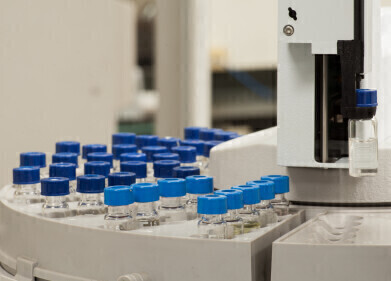-
 Plants release different chemicals that can be detected through GC-MS
Plants release different chemicals that can be detected through GC-MS
GC, MDGC
GC-MS 'great for plant study'
Apr 29 2010
In an article for MediaWorks, Fiona Hodge noted GC-MS techniques are highly influential in allowing people to learn more about leafy species.
She remarked: "Thank goodness for gas chromatography-mass spectrometry ... which allows us to identify the compounds plants release ... it's great to be able to eavesdrop on the wonderful world of plants."
According to Ms Hodge, modern procedures enable laboratory scientists to see how vegetation communicates through chemicals.
When under attack from herbivores, foliage unleashes certain compounds that warn neighbours they are being consumed, she explained.
The blogger noted this allows shrubberies to prepare themselves by producing chemicals that are distasteful to animals.
Brett Paull, director of the Irish Separation Science Cluster at Dublin City University, recently told Royal Society of Chemistry Publishing that seeing how chromatography affects real-life situations is what inspired him to take it up as a career.
Events
Jan 20 2025 Amsterdam, Netherlands
Feb 03 2025 Dubai, UAE
Feb 05 2025 Guangzhou, China
Mar 01 2025 Boston, MA, USA
Mar 04 2025 Berlin, Germany











